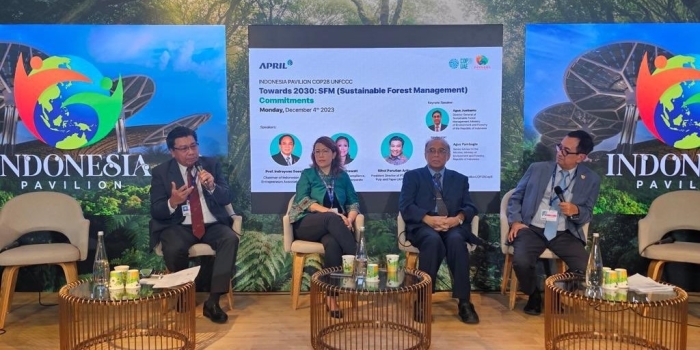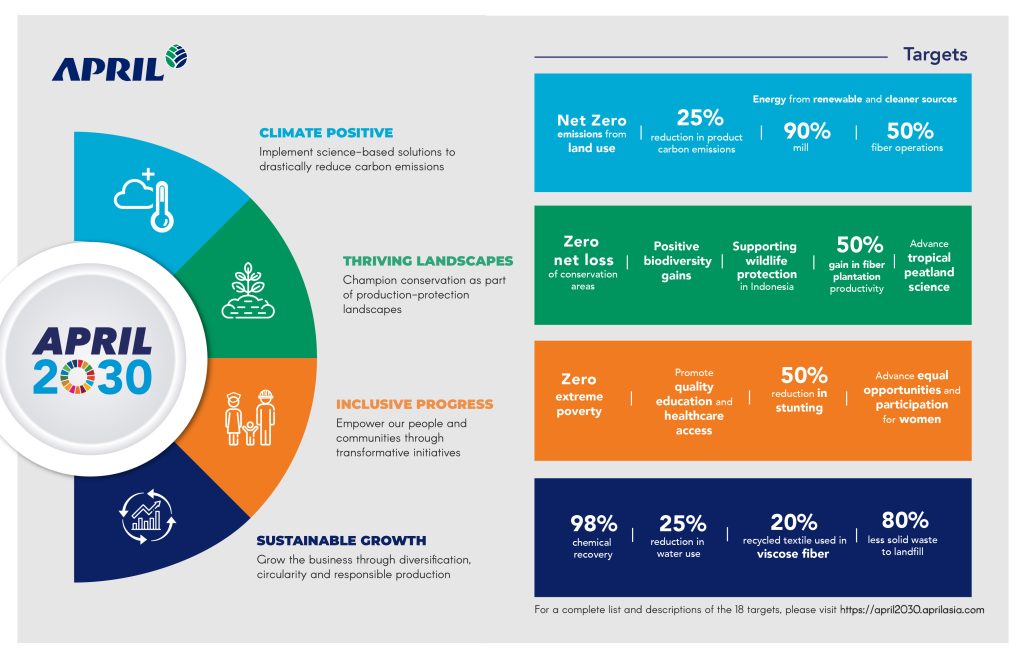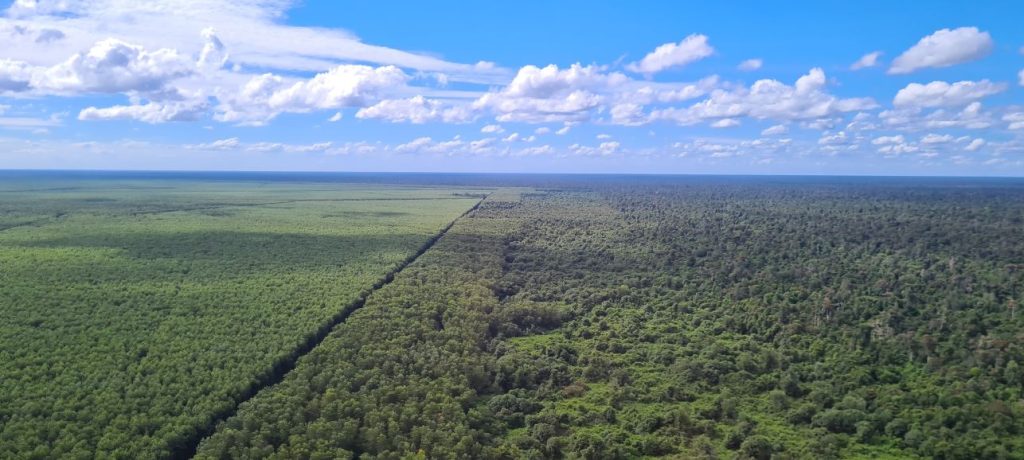From Car Rental Driver to Country Delegate: A Tanoto Scholar Alumni’s Story
Several years ago, a rental car driver used to look up to the sky whenever an airplane flew past and told himself that he would one day take a plane...

Latest updates on what's happening in RGE Group

This article is an adaptation of “APRIL Group reaffirms commitment to support Indonesia FOLU Net Sink 2030 targets at COP28”, published in The Jakarta Post. Changes include rewriting some of the passages and adding original materials.
Sustainable pulp and paper producer APRIL Group reiterated its commitment to contributing to Indonesia’s Forest and Other Land Use (FOLU) Net Sink 2030 targets through sustainable forest management and conservation programmes. This affirmation was made during the United Nations Climate Change Conference (COP28) at Indonesia’s Pavilion, in Dubai on 4 Dec 2023.
Sihol Aritonang, President Director of PT Riau Andalan Pulp and Paper (RAPP), the operating arm of APRIL Group, emphasised the company’s efforts toward sustainable forest management based on the Sustainable Forest Management Policy (SFMP) 2.0, implemented in 2015. The commitment was further strengthened with the launch of the one-decade sustainability commitment, APRIL2030, which sets ambitious targets aligned with Indonesia’s FOLU Net Sink and global Sustainable Development Goals (SDGs) agendas.
APRIL2030 comprises specific, time-bound, science-based targets aimed at transforming APRIL into a more sustainable and circular business by 2030. Sihol, participating as a panellist in the Toward 2030 Sustainable Forest Management Commitments session at the Indonesian Pavilion, emphasised the active role of private companies like APRIL in supporting Indonesia’s FOLU Net Sink 2030 commitment.

APRIL2030 is APRIL’s vision for meeting the challenges of the next decade, and is comprised of four commitments with 18 ambitious targets
“FOLU Net Sink 2030 is a crucial target for Indonesia and [players in] the private sector, such as APRIL, are committed to actively contributing to the achievement of this goal,” Sihol stated during the panel discussion at COP28.
FOLU Net Sink is when the amount of carbon absorbed by the forest and land sector is equal to or greater than the emissions it produces. FOLU, initiated by Indonesia’s Environment and Forestry Ministry, represents the country’s concrete steps in the forestry sector to fulfil the Paris Agreement, reducing carbon emissions and limiting global temperature rise below 1.5 degrees Celsius.
APRIL’s actions to contribute to the FOLU Net Sink include innovative models in sustainable forest management, such as the production-protection approach. This model designates industrial plantation areas as a protective barrier surrounding allocated zones for conservation and restoration. Furthermore, industrial plantation areas contribute financially to protection zones.

The production-protection model integrates fiber plantations and natural forest restoration areas, keeping the forest safe from external threat
The production-protection model, including a unique one-for-one commitment, ensures the conservation and restoration of forest areas equaling the size of its managed land area, with 80 percent of this commitment already fulfilled. APRIL’s initiatives encompass conserving and restoring over 150,000 hectares of ecologically diverse tropical peat forests under its Restorasi Ekosistem Riau (RER) programme. The RER initiative, twice the size of Singapore, is one of Southeast Asia’s most extensive private-sector forest restoration and biodiversity conservation projects.
Through its APRIL2030 commitment, the company reinforces its financial dedication by allocating US$1 from every tonne of produced wood to fund restoration and conservation activities. Since 2020, $47 million has been allocated for various conservation and restoration activities, including the RER programme.
“We utilise these funds for various conservation and restoration initiatives, such as the RER programme,” Sihol said.
Sihol highlighted APRIL’s investments in research and technology to minimise land usage for raw material production, increasing wood fibre productivity by up to 50 percent by 2030. Practices in silviculture, genetic improvement and integrated pest and disease management have resulted in a 13 percent increase in plantation forest productivity.
Acting Director General of Sustainable Forest Management at the Ministry of Environment and Forestry, Agus, emphasised the necessity of sustainable forest management to support community well-being and environmental sustainability. Agus expressed that Indonesia’s FOLU Net Sink target 2030 could be achieved as a crucial climate change mitigation measure through collaborative efforts.
“I am optimistic that, through collaboration from all parties, the FOLU Net Sink target can be achieved,” he said.